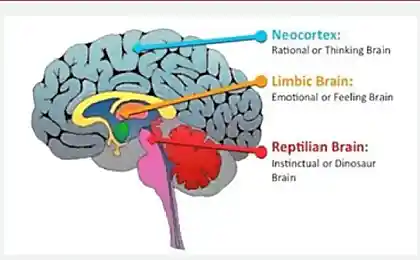580
Careful! Fluoride — a toxin for the brain and the thyroid gland
It is well known that the toothpaste contains fluoride and its compounds can prevent the development of caries. With the aim of prevention of dental caries in the 1960-ies have resorted to water fluoridation. The positive effect of such decisions was obvious, but over time, scientists have discovered that the harm from water fluoridation more than good. The uncontrolled ingress of the substance in the body can lead to negative consequences, including for the brain. Who added the fluoride one of the ten most hazardous chemicals.
Sixty million ninety eight thousand eighty six
What problems can lead the neurotoxin fluoride?
Neurotoxin – a substance that causes destruction of the tissues of the brain, spinal cord and nerves. Fluoride can adversely affect the brain over the most important stages of human life – before birth and in early childhood. Harm to the brain this substance compare with lead, arsenic, mercury, toluene, and PCBs,
because it can be one of the reasons:
autism;
of attention deficit disorder with hyperactivity;
dyslexia;
low level IQ;
aggressive behavior ;
and other cognitive disorders.
Harvard school of public health and China Medical University have jointly conducted an analysis of 27 studies on the effects of fluoride, and conclude on the harm to brain development. Children who consume fluoride in large amounts (it gets into the organism from water, food, toothpaste), usually much worse cope with IQ tests than their peers who manage to avoid it. 49 this is confirmed by research on humans.
Back in the 1970-ies experts have noticed that patients with Alzheimer's concentration of neurotoxin aluminium in the brain is increased. It is now clear how this is connected with fluoride. The blood-brain barrier, which prevents harmful substances to enter the brain. However fluoride, coupled with the aluminium (aluminum fluoride), is able to overcome this barrier and be deposited in nerve cells, leading to the development of Alzheimer's disease.
The thyroid gland also afraid of fluoride, which greatly increases the risk of developing hypothyroidism. Fluoride binds to iodine receptors and leads to a significant reduction in the amount of iodine required for the normal activity of the thyroid gland. As a result, the thyroid cannot synthesize hormones in the necessary quantities.
Thus, decreased activity of the thyroid gland leads to:
the dimness of consciousness;
memory loss;
deterioration of concentration;
depressions;
anxieties;
deterioration of cognitive functions.
When the fluorine overcomes the BBB, it leads to disruption of the hippocampus, cerebellum and neocortex. The hippocampus is responsible for memory and is very important for learning, control of emotions and the suppression of stress responses. The neocortex is involved in sensory perception, thinking, and the cerebellum is extremely important for coordination of movements and balance.
However, the neurotoxin fluoride causes damage not only the brain but also the spinal cord, and nerves.
The pineal gland also is affected. The pineal gland is a small structure in the brain responsible for the production of melatonin – a potent antioxidant that protects the brain from serious diseases, including Alzheimer's disease, and prolongs life. When melatonin is broken, there may be:
insomnia;
depression;
accelerated aging of the brain.
Fluorine, which is contained in the antidepressants, particularly the drug Prozac (fluoxetine), actually can cause depression. In addition to the Prozac, fluoride is included:
Paxil; Zoloft; Lexapro.
Therefore, to cope with depression with natural remedies is not only safer but also more efficient.
How to protect yourself from the negative effects of fluoride?
To get a water filter.
Use toothpaste without fluoride.
Eat less canned and processed foods.
To drink juices and pure water.
Take it easy with teas (tea leaves are saturated with fluorine from the soil, and the older the plant, the more toxin it may contain). published
P. S. And remember, only by changing their consumption — together we change the world! ©
Join us in Facebook , Vkontakte, Odnoklassniki
Source: vk.com/id27265102?w=wall27265102_2490
Sixty million ninety eight thousand eighty six
What problems can lead the neurotoxin fluoride?
Neurotoxin – a substance that causes destruction of the tissues of the brain, spinal cord and nerves. Fluoride can adversely affect the brain over the most important stages of human life – before birth and in early childhood. Harm to the brain this substance compare with lead, arsenic, mercury, toluene, and PCBs,
because it can be one of the reasons:
autism;
of attention deficit disorder with hyperactivity;
dyslexia;
low level IQ;
aggressive behavior ;
and other cognitive disorders.
Harvard school of public health and China Medical University have jointly conducted an analysis of 27 studies on the effects of fluoride, and conclude on the harm to brain development. Children who consume fluoride in large amounts (it gets into the organism from water, food, toothpaste), usually much worse cope with IQ tests than their peers who manage to avoid it. 49 this is confirmed by research on humans.
Back in the 1970-ies experts have noticed that patients with Alzheimer's concentration of neurotoxin aluminium in the brain is increased. It is now clear how this is connected with fluoride. The blood-brain barrier, which prevents harmful substances to enter the brain. However fluoride, coupled with the aluminium (aluminum fluoride), is able to overcome this barrier and be deposited in nerve cells, leading to the development of Alzheimer's disease.
The thyroid gland also afraid of fluoride, which greatly increases the risk of developing hypothyroidism. Fluoride binds to iodine receptors and leads to a significant reduction in the amount of iodine required for the normal activity of the thyroid gland. As a result, the thyroid cannot synthesize hormones in the necessary quantities.
Thus, decreased activity of the thyroid gland leads to:
the dimness of consciousness;
memory loss;
deterioration of concentration;
depressions;
anxieties;
deterioration of cognitive functions.
When the fluorine overcomes the BBB, it leads to disruption of the hippocampus, cerebellum and neocortex. The hippocampus is responsible for memory and is very important for learning, control of emotions and the suppression of stress responses. The neocortex is involved in sensory perception, thinking, and the cerebellum is extremely important for coordination of movements and balance.
However, the neurotoxin fluoride causes damage not only the brain but also the spinal cord, and nerves.
The pineal gland also is affected. The pineal gland is a small structure in the brain responsible for the production of melatonin – a potent antioxidant that protects the brain from serious diseases, including Alzheimer's disease, and prolongs life. When melatonin is broken, there may be:
insomnia;
depression;
accelerated aging of the brain.
Fluorine, which is contained in the antidepressants, particularly the drug Prozac (fluoxetine), actually can cause depression. In addition to the Prozac, fluoride is included:
Paxil; Zoloft; Lexapro.
Therefore, to cope with depression with natural remedies is not only safer but also more efficient.
How to protect yourself from the negative effects of fluoride?
To get a water filter.
Use toothpaste without fluoride.
Eat less canned and processed foods.
To drink juices and pure water.
Take it easy with teas (tea leaves are saturated with fluorine from the soil, and the older the plant, the more toxin it may contain). published
P. S. And remember, only by changing their consumption — together we change the world! ©
Join us in Facebook , Vkontakte, Odnoklassniki
Source: vk.com/id27265102?w=wall27265102_2490























